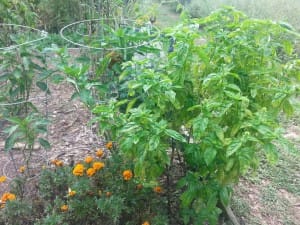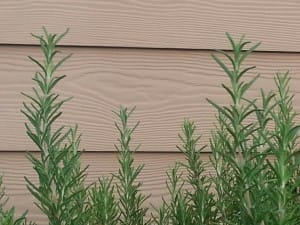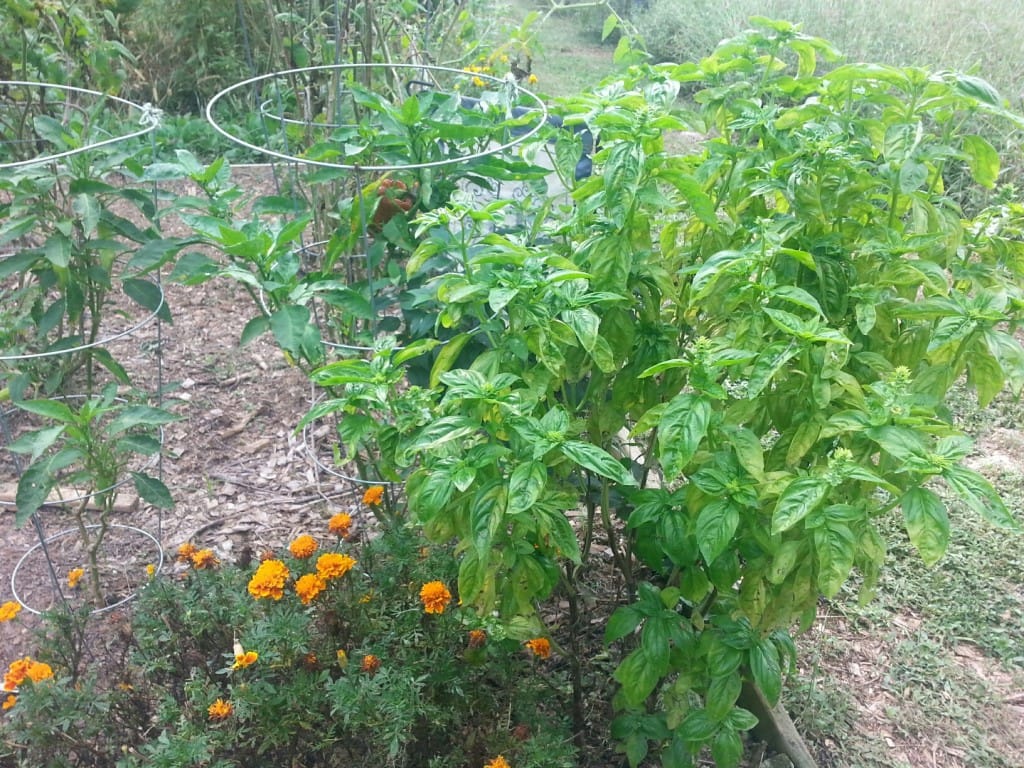
Some community gardens have a common area that is available for herb planting or individuals may decide to place them in their plots. Herbs in Southern Gardens by UGA’s Wayne McLaurin and Sylvia McLaurin is a good place to start when thinking about planting herbs. In the garden remember, if you want good flavor, pinch off the budding flowers. (Although, many types of herb flowers are great for pollinators).
You have grown herb plants and now you have a little (or big) herb garden. What do I do with all this stuff? An easy way to begin is to taste the herb and think about the flavor. What foods would be enhanced by that flavor? I like to throw a lot of herbs in tossed salads. Experiment with adding chives, parsley, lavender, thyme, oregano, or basil to tossed salads. Don’t put all of them in at first. Try one or two herbs initially to see what you think of the flavor addition. Later you may be loading up the salad bowl with three or more tasty herbs. Another way to start is to experiment with herbs in omelets. Eggs are a neutral flavor serving as a backdrop for the fresh vegetables and herbs you add. You may be able to add less salt as the eggs are flavored by the herbs.

Soup time is just around the corner, and soups are my favorite for adding herbs. This summer mature chives had to be removed from my garden to allow summer vegetables more space. Having a lot of chives at once was really not a problem. They were quickly washed, chopped, and frozen in small portions for addition into winter soups. Just like big onions these little onions with intense flavor are very good in soups like Beef and Barley, Chicken and Rice, or my favorite Vegetable. Again experimenting with flavors to find your favorite is fun. A guideline to help you begin is in tomato based soups try: basil, oregano, parsley and/or cilantro. For soups with chicken as the base try: thyme, parsley, sage, and or savory.
Like soups, casseroles can be flavored with herbs to your hearts (or taste buds) content. The guidelines for casseroles are similar to those outlined for soups in the paragraph above. These foods are the comfort foods that shout homemade, so make the flavor yours by adding your favorite herbs.
As we approach the winter several popular herbs won’t make it past the first frost. Basil is tender and if you want basil in the winter you will need to dry it. One easy way to dry the plants is to cut the stalks, tie them together and hang them upside down in a dry place. Alternately you can dry the leaves inside individually on wax paper, making sure the wax paper is dry. More sophisticated gardeners use a food dryer/dehydrator for drying herbs. Any way you choose you will be happy in December when you have that flavor.
Oregano, rosemary and thyme plants may survive the winter if weather conditions are favorable. For more information on incorporating herbs in your community garden contact your local UGA Extension Agent. He/she will be able to give you useful information to help you achieve success.
Linda Hlozansky has been a Cobb County Master Gardener since 2009. She is a talented gardener and she cooks as well as she gardens. Her family is very lucky!
Happy gardening!
